CHECK IT OUT! APASWE No.02 (2013-2015)
CHECK IT OUT! APASWE
No.2(2013-2015)from President OfficeDecember1,2013
New Executive Board Members
Immediate Past President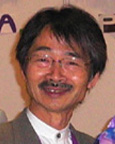
Tatsuru Akimoto
Japan College of Social Work (Tokyo, Japan)
Message to APASWE Members
Thank you very much for your sincere cooperation during my three-year-and-half presidency (November 2009-June 2013). With your positive involvement and contribution, the APASWE institutional membership increased from 150-60 four or five years ago to 286 from 30 countries/regions. Most major schools of social work in the Region are now our members.
The world map of social work has changed. It is not Europe’s and US & Canada’s any more. Approximately 40 percent of schools in the world exist today in Asia and the Pacific. The dissemination of Western social work won’t be the answer to us.
The APASWE’s annual due is US$15-20 per school. Don’t expect the APASWE any financial support and tangible services and benefits to be given. Please utilize the APASWE’s human and organizational resource and network with your initiative to improve your programs/schools and the social work education in Asia and the Pacific and in the world. Let’s work together. You have now excellent leaders you chose.
President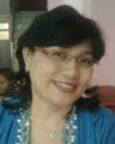
Fentiny Nugroho, Ph.D
Indonesia
Dear all,
I am Fentiny. I feel honored to serve as a present President of Asian Pacific Association of Social Work Education (APASWE), which previously I was its Committee Board member. I am very thankful for the opportunity given to me to do more for this important regional organization. As a Vice President of International Association of Schools of Social Work (IASSW), and Immediate Past Chair-Indonesian Association of Social Work Education and Head of Department of Social Welfare-University of Indonesia, I hope I will be able to bring APASWE to become an organization which is updated with global changes and responsive to the regional and local dynamics.
My interest areas include social work methods, poverty and globalization, social development, social work in multicultural society, practicum, child, woman, and community development
Message to APASWE Members
Dear all board and school members, it’s a great happiness for me to know you. We are brothers and sisters, as we are from the same origins, ie, social work schools of Asia Pacific region. Let’s work hand in hand to advance social work education in our region. Our education shall create social work which is able to respond to the global economic policy that frequently causes many people suffer. Our responsibility is to produce highly qualified social workers, who can work with head, heart and hand, then bring a great impact on human’s well-being in this challenging world. Without your support, APASWE can do nothing; one of your great supports is concerned with the membership fees payment. Best wishes, Fentiny
Treasurer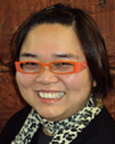
Polly Yeung
Massey University, Palmerston North,
New Zealand
My name is Polly and this is my second term being the Treasurer for APASWE. I work at the School of Health and Social Services, Massey University, New Zealand. My teaching areas include: Social Policy, Community Development, Research Methods and Social Work Fields of Practice. Currently I am a member of the Health and Aging Research Team (HART) at Massey University and my research area involves looking at aging and disability with the longitudinal data set to develop statistical models.
Message to APASWE Members
Welcome to all APASWE members. It has been a great honor to serve the board for APASWE since 2011 as the Treasurer. I often have the privilege to have the first point of contact with new members through membership process. I look forward to meet our members in the near future.
Board Members
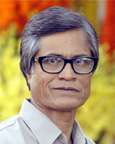
Muhammad Samad PhD
Professor of Social Work, University of Dhaka and Vice Chancellor,
University of Information Technology and Sciences (UITS), Dhaka, Bangladesh.
I was born in a remote village in 1956 in Bangladesh. I have earned my Bachelor of Social Science (BSS) with honors and master’s degrees in Social Welfare (Social Work) from the Institute of Social Welfare and Research (ISWR), University of Dhaka. I have completed my PhD on the participation of the rural poor in development programs of government and NGOs in Bangladesh. I am professor at the Institute of Social Work & Research, University of Dhaka. Currently I am the Vice Chancellor of the University of Information Technology and Sciences (UITS), Dhaka, Bangladesh. I taught the course Globalization of Social Welfare as a visiting Professor at the Department of Social Work of Winona State University (WSU), Minnesota, USA twice in 2005 and 2009 respectively. I have worked as a Fellow of Katherine A. Kendall Institute of International Social Work Education, CSWE, Washington DC, USA in 2009. I have been serving as the President of Bangladesh Council for Social Work Education (BCSWE) since 2012. I am also a poet in my mother language Bangla.
I would like to take part in realizing program-actives of APASWE together with all our social work fellows and friends. Particularly, I would like to undertake some initiatives in the South Asia through organizing seminar, workshop and conference to enhance the social work education and practice in the region.
Message to APASWE Members
Let me convey my respect and good wishes to you all.
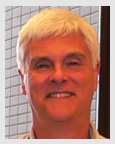
Mark Henrickson
Massey University (Auckland, New Zealand)
I have been involved with APASWE since 2006, first as treasurer (2006-2011), then as vice president (2011-2013). It gives me great pleasure to continue to support the important international and regional work of APASWE. I have had the honour of editing three books for APASWE, and I would like to draw attention to two of them:
- C. Noble, M. Henrickson& I.Y. Han (Eds.). Social Work Education: Voices from the Asia-Pacific (2nded.) (pp. 81-104). Sydney, NSW: Sydney University Press.
- Noble, C., &Henrickson, M. (Eds.) (2011). Social work field education and supervision across Asia-Pacific. Sydney, NSW: Sydney University Press.
These books are examples of the rich opportunities for regional collaboration which APASWE provides.
Currently a major issue for international social work is the review of the definition of social work. It is my privilege to serve on the joint international committee for that process. One of the things that must happen in the next 18 months is the development of an Asia-Pacific regional definition of social work which will amplify the international definition. I anticipate that APASWE will take a major leadership role in guiding that process in the region.
I would also like to see increased international guest lecturing and consultation throughout the region. Many APASWE members have great research experience, and can share those experiences with other classrooms. New technologies allow great international collaboration at low cost, so I hope we will see more of this collaboration.
Message to APASWE Members
APASWE is currently one of the strongest and most robust of the regional social work organizations. APASWE is its members, and it is only as strong as its members want it to be. I hope that every social work educator in the region will ensure that their institution is a current member of APASWE, and that each individual member is active and involved with the organization. The world is filled with conflicts and challenges, and becoming involved with an international organization is one of the best ways to get to know people around the region and around the world. It is a way to help our classrooms come alive. It is a way to ensure that our teaching occurs in an international context. Not only we, but our students benefit from our international and regional involvement.
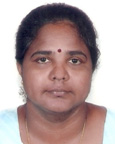
VarathagowryVasudevan
National Institute of Social Development, Sri Lanka School of Social Work,
I am GowryVasudevan attached to the National Institute of Social Development (Sri LankaSchool of Social Work) in Colombo, as a Senior Lecturer. I obtained my Master’s degree in Social Work specializing on Family and Child Welfare from the Tata Institute of Social Sciences, Mumbai, India I earned my first degree in Sociology from the University of Jaffna, Sri Lanka and the Post-graduate Diploma in Applied Sociology from the University of Colombo, Sri Lanka. My specialty areas are field education, social work curriculum development, family and child welfare, child protection, and Elderly women in Institutionalized care . I am a dedicated hardworking and committed professional social work educator. I contributed immensely to the development of the curricula of the main academic programmes.
I would like to assist APASWE:
a) Promote social work research and social work education in the Asia Pacific countries
b ) Promote exchange programmes among the Asia pacific countries
c) Promote individual and school membership in APASWE
Message to APASWE Members
As Social work is a profession with a human touch, we should all be dedicated service providers with a heart Spread systematic practice, values and principles of the profession.
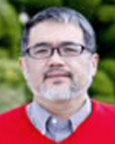
Hisanori Ishikawa
Department of Social Work, KwanseiGakuinUniversity,Japan
I have taught the social welfare as professor at KwanseiGakuin University. I have also been involved in a variety of activities and studies as researcher, editor and secretary general.
I understand how much the activities of APASWE are important in Asia and Pacific region. It is a great pleasure that I work for APASWE as one of the board members.
- Hits: 2220


